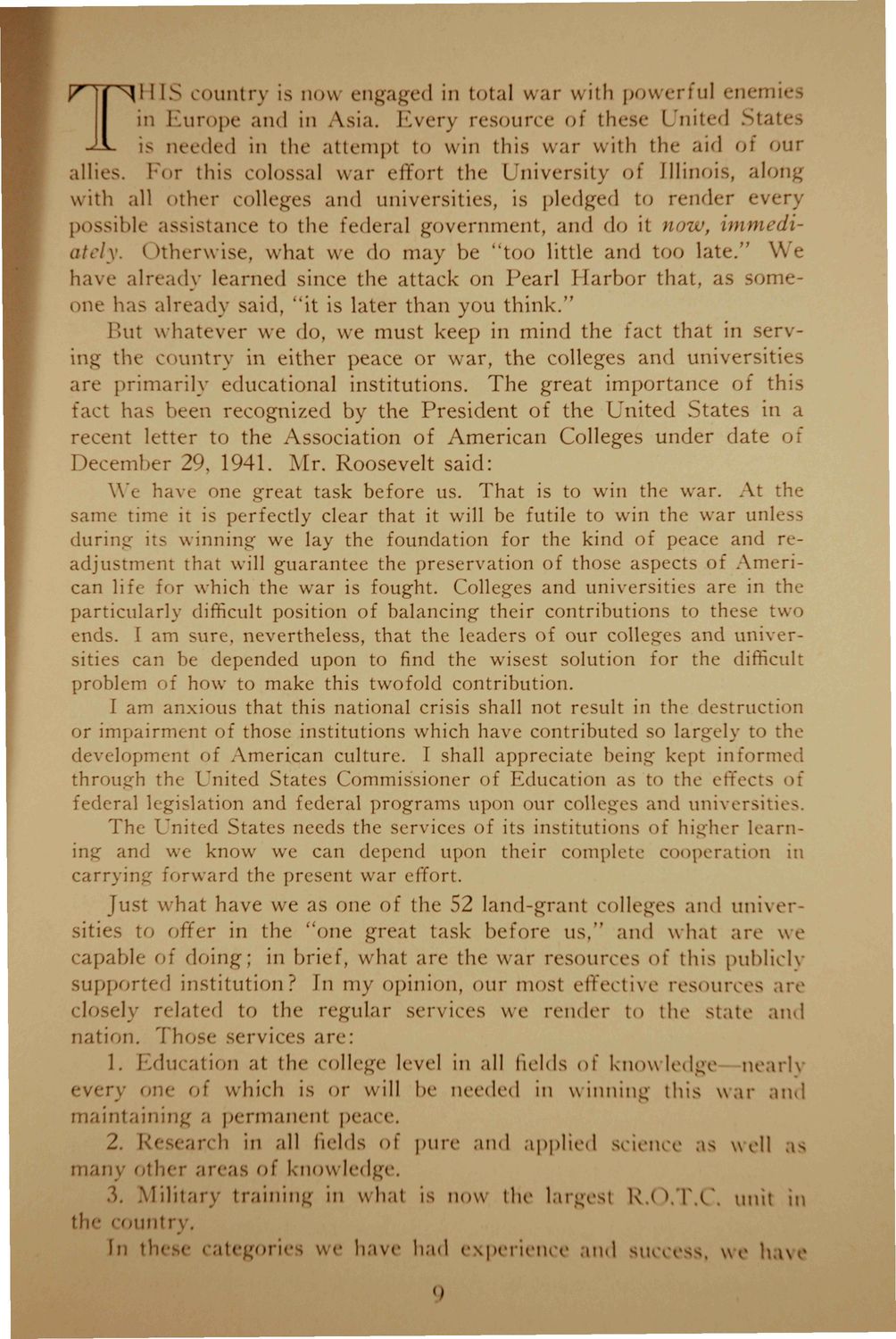| |
| |
Caption: Convocation - 1942 Winter-Spring
This is a reduced-resolution page image for fast online browsing.

EXTRACTED TEXT FROM PAGE:
T H I S country is now engaged in total war with powerful enemie in E u r o p e and in Asia. E v e r y resource of these United States is needed in the attempt to win this war with the aid of our allien. For this colossal war effort the University of Illinois, along with all Other colleges and universities, is pledged to render e v e r possible assistance to the federal government, and do it now, immediately. ( >therwise, what we do m a y be "too little and too late." W e have already learned since the attack on Pearl H a r b o r that, as ^ome>ne has already said, "it is later than you t h i n k . " But whatever we do, we must keep in mind the fact that in serving the c o u n t r y in either peace o r war, the colleges and universities are primarily educational institutions. T h e great importance of thi fact has been recognized by the P r e s i d e n t of the United S t a t e s in a recent letter to the Association of A m e r i c a n Colleges u n d e r date o December 29. 1941. M r . Roosevelt said: We have one great task before us. That is to win the war. At th sanK- time it is perfectly clear that it will be futile to win the war unless during its winning we lay the foundation for the kind of peace and readjustment that will guarantee the preservation of those aspects of American lif< for which the war is fought. Colleges and universities are in th particularly difficult position of balancing their contributions to these two ends. I am sure, nevertheless, that the leaders of our colleges and universities can be depended upon to find the wisest solution for the difficult problem of how to make this twofold contribution. I am anxious that this national crisis shall not result in the destruction or impairment of those institutions which have contributed so largely to th* development of American culture. I shall appreciate being kept informe< through the L'nited States Commissioner of Education as to the effects o federal legislation and federal programs upon our colleges and universities. The United States needs the services of its institutions of higher learnr inu and we know we can depend upon their complete cooperation in carrying forward the present war effort. Just what have we as one of the 52 land-grant colleges and university to offer in the "one great task before u s , " and what are we apable of d o i n g ; in brief, what are the war resources ^i this publicl] supported institution? In my opinion, our most effective resources AYC [osely related to the regular services we render to the state and nation. Those services a r e : 1. I lucation at the college level in all fields of knowledge—nearh tvevy one of which is or will he needed in winning this war and maintaining a permanent |>ea< <\ 2. Research in all fields of pure and applied science as well as many otl i r a n as of know ledge. 3. Military training in what is now the largest R.O.T.C unit in th'- (ountry. In the- categories w have h I experience and su< ss, w ha\ 0
| |